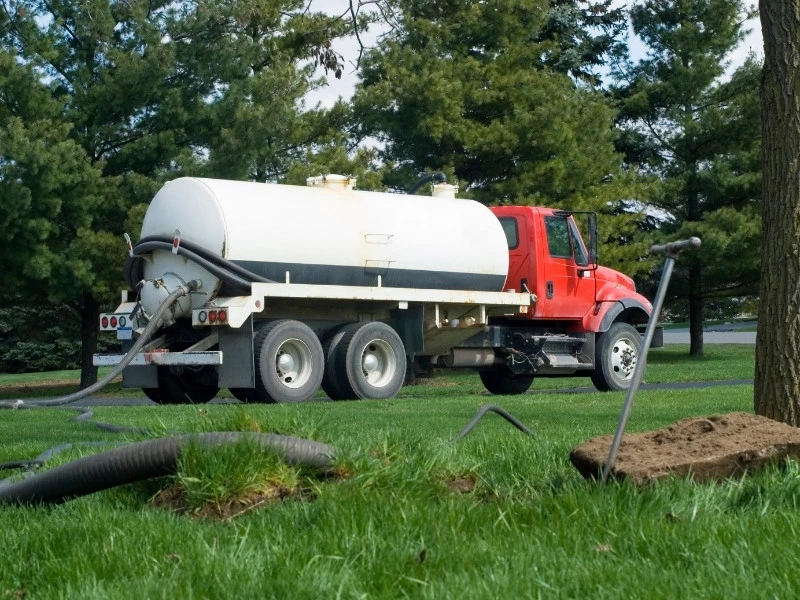If you own a home with a conventional septic system, one question you can’t afford to ignore is: How often to pump septic tank? It’s one of those household tasks that quietly builds up in the background until it’s not so quiet anymore. Ignore it too long, and you’re facing not just bad smells but the kind of very expensive repair that makes your wallet cry.
Let’s dig into the facts and flush out the myths (pun intended).
How Often Should You Pump Your Septic Tank?
Most households need to pump their septic tanks every 3 to 5 years. That’s the general rule of thumb recommended by the Environmental Protection Agency (EPA). But, and this is a big but, your pumping schedule depends on a few important factors.
Key Factors That Affect Septic Tank Pumping
1. Household Size
The more household members, the faster your tank fills. A family of five generates more household wastewater than a retired couple. More people = more human waste and solid material.
2. Tank Size and System’s Capacity
A smaller tank or outdated system means less room before it’s time to pump. If your system’s overloaded, you’re risking overflow into the drain field or leach field, and that’s a health hazard.
3. Water Usage Habits
More water from long showers, constant dishwashing, and a busy washing machine can overload your system. Space out laundry days and consider high-efficiency appliances to reduce waste flow.
4. Garbage Disposal Use
A garbage disposal increases the amount of grease, food particles, and heavy solids entering your tank. Use it sparingly, or better yet, scrape scraps into the trash can instead.
5. System Age and Design
Older systems may not handle today’s usage levels, especially if they’ve never been system inspected. You’ll also want to check if roof drains or sump pumps are illegally connected—they can flood your tank with clean water, reducing effectiveness.
What Happens If You Skip Regular Pumping?
Neglecting to pump your septic tank doesn’t just result in funky smells. It can lead to:
- Waste backing up into your home
- Overflow into your drainfield trenches
- Damage to the bottom of the tank, requiring expensive repair
- Sludge layer rising too high and clogging the outlet
- Environmental hazards if effluent reaches groundwater
Skipping regular pumping can take your system from working properly to a full-blown emergency.

Signs It’s Time to Pump
Watch for these warning signs:
- Slow-draining sinks and tubs
- Gurgling sounds in pipes
- Bad odors around the yard
- Pooling liquid or lush grass over the drain field
- Rising sludge and scum levels
If your sludge level is near the top of the tank, it’s time to call in a pro.
✅ PRO TIP: request a service report showing sludge and scum thickness so you know when to schedule your next pump-out.
Septic Tank Pumping Frequency Table
| Household Size | Tank Size | Recommended Pumping Frequency |
|---|---|---|
| 2 people | 1,000 gal | Every 5 years |
| 4 people | 1,000 gal | Every 3 years |
| 6+ people | 1,500 gal | Every 2 years |
These are general guidelines, not gospel. Use them as a starting point, then monitor your tank’s behavior.
Best Practices to Extend Time Between Pumps
- Use less water overall
- Avoid flushing wipes, toilet paper in bulk, and cigarette butts
- Keep drain cleaners and chemicals out of the system, they kill good bacteria
- Don’t plant trees near your leach field, roots can invade and block the lines
- Keep a log of when your system was inspected and tank pumped
Final Thoughts: Maintain to Avoid Mayhem
So, how often should you pump a septic tank? For most households, every 3–5 years is fine—but that depends on your system, lifestyle, and how well you maintain it. Ignoring your septic system might not bite you today, but it will eventually. And it’ll be messy.
Get your system inspected, ask about your system’s capacity, and don’t be afraid to ask your technician about your scum layer or whether your septic system works as intended.
Need help figuring out your next pump-out? Talk to a certified septic pro today, like Phyxter Home Services, and protect your yard, home, and bank account.
Want to keep your home’s plumbing in top shape? Check out our expert plumbing tips and guides to prevent problems before they start and save on costly repairs.








